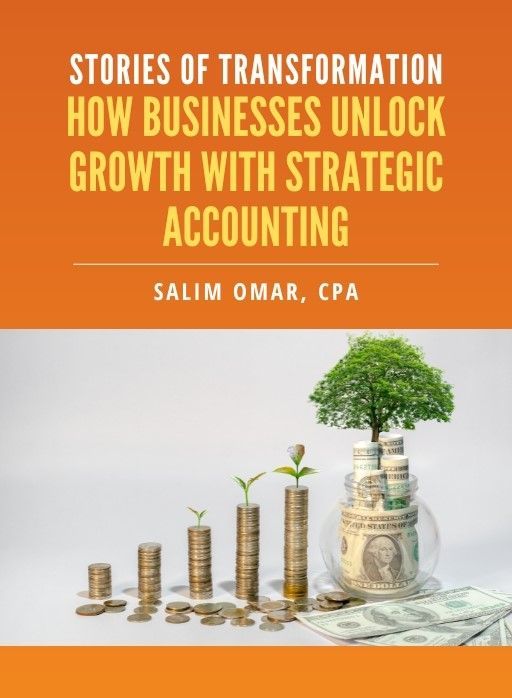Avoiding Common Salary Mistakes That Trigger IRS Attention
Every business owner knows that payroll can feel like a tightrope walk—one wrong step and the IRS is watching. Salaries, bonuses, and distributions are more than just numbers on a spreadsheet; they’re statements of compliance, strategy, and fairness. Yet many owners unintentionally trigger IRS scrutiny simply by making avoidable mistakes in how they pay themselves or their employees.
The good news? Awareness and strategy can prevent most payroll headaches. Avoiding common salary mistakes keeps your business penalty-free, ensures compliance, and even supports smarter tax planning.
Straight Talk CPAs has seen countless businesses navigate these pitfalls successfully. Owners who stay proactive don’t just dodge audits—they save time, money, and stress while keeping their payroll process smooth and reliable.
Why Salary Mistakes Catch the IRS’s Eye
The IRS isn’t looking to penalize every small business owner, but certain patterns raise red flags. Knowing these early can save you from costly inquiries or fines.
- Unreasonable Compensation
Paying yourself too little (or too much) relative to your role and business profits is one of the most common triggers. The IRS expects “reasonable compensation” for owners of S-Corps, C-Corps, and other entities. Outliers can prompt audits. - Improper Withholding
Forgetting to withhold payroll taxes or underestimating amounts—even unintentionally—can quickly escalate into penalties. - Late Payroll Filings
Payroll tax deposits and reporting deadlines are strict. Missing Form 941, W-2, or state filings creates an instant IRS red flag.
Inconsistent Pay Practices
Shifting salaries, bonuses, or draws irregularly can look suspicious, even if motivated by cash flow constraints.
Common Salary Mistakes to Avoid
1. Paying Yourself Inconsistently
Many business owners fluctuate between draws, bonuses, and salaries without a plan. Consistent, documented pay practices show the IRS that you’re running a professional operation.
2. Ignoring Reasonable Compensation Rules
Owners often underpay themselves to save on payroll taxes. But this can backfire. The IRS expects compensation that reflects your role, experience, and the business’s profits.
3. Mixing Personal and Business Finances
Using business accounts for personal expenses or vice versa complicates payroll records and raises audit risks. Clear separation keeps everything clean and transparent.
4. Forgetting Payroll Taxes
Even minor oversights on withholding Social Security, Medicare, or unemployment taxes can trigger penalties. Setting up automated payroll systems or working with a
CPA helps prevent mistakes.
5. Failing to Document Bonuses and Distributions
Bonuses or year-end distributions must be properly documented. IRS scrutiny often arises when these payments appear arbitrary or unrecorded.
Myths About Salary Mistakes
“I’m small, so the IRS won’t notice me.”
False. Payroll mistakes attract attention regardless of business size. Small errors in small companies often stand out because they’re easier for auditors to review.
“Paying less saves me money.”
Partially true—but underpaying yourself or employees can create bigger tax problems, penalties, or IRS inquiries. Reasonable, documented compensation is safer and smarter.
“I can fix everything at tax time.”
Not ideal. Retroactive adjustments can raise questions and create complications. Consistent, proactive payroll management avoids last-minute headaches.
How to Avoid Salary Mistakes
Partner with a CPA.
A CPA ensures payroll aligns with IRS rules, entity structure, and tax planning goals. They’ll guide compensation levels, withholding, and documentation.
Use reliable payroll systems.
Automation reduces human error. With a trusted platform, you’ll consistently calculate taxes, file returns, and pay employees accurately.
Document everything.
Salary schedules, bonus calculations, and distributions should all be in writing. Documentation proves compliance in case of IRS questions.
Separate personal and business accounts.
This prevents accidental misclassifications and makes audits or reconciliations straightforward.
Plan year-end moves carefully.
Bonuses, draws, or distributions should be timed strategically to optimize deductions and avoid missteps.
Bottom Line
Salary mistakes don’t have to derail your business. Avoiding them isn’t about perfection—it’s about strategy, consistency, and documentation. With proactive planning, the right guidance, and disciplined payroll practices, you can stay IRS-compliant while paying yourself and your employees confidently.
Think of it this way: the IRS isn’t an enemy, but ignoring their rules is a risk. By paying yourself and your team smartly, you create a defensible, smooth, and stress-free payroll process. That’s real peace of mind for a busy business owner.
Free eBook:
Stories of Transformation


Salim is a straight-talking CPA with 30+ years of entrepreneurial and accounting experience. His professional background includes experience as a former Chief Financial Officer and, for the last twenty-five years, as a serial 7-Figure entrepreneur.





